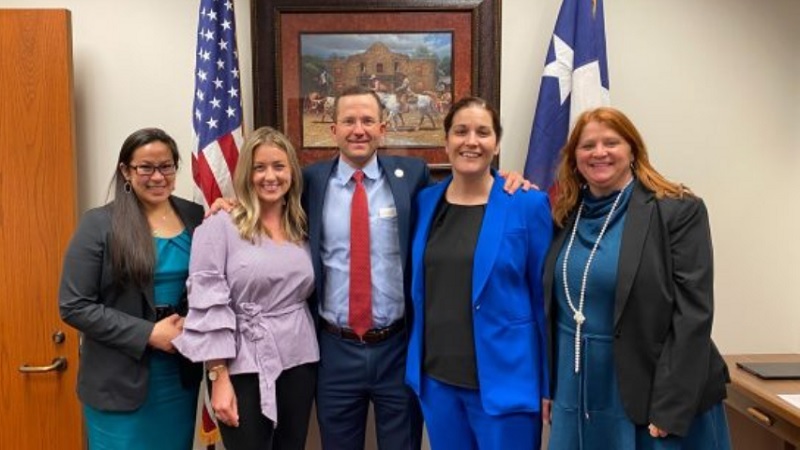Most U.S. states are still failing an international anti-human trafficking grading system but an updated methodology is giving states credit for anti-trafficking laws.
Shared Hope International announced its new methodology during its JuST Conference earlier this month.
“As Shared Hope updated the methodology for grading states, the new scores placed a greater emphasis on laws that protect victims and survivors,” Allies Against Slavery President and CEO John Nehme, who attended the conference, said in a newsletter.
Each year, Shared Hope releases report cards for each state and Washington, assessing statutes related to and impacting child and youth sex trafficking.
Nehme attended this year's event Nov. 1-3 in Fort Worth, Texas and said the 2022 results for each state were "eye-opening." Shared Hope International's report cards for each state on child and youth sex trafficking found that 37 states earned failing grades while 13 states score Cs or Ds.
One state, Tennessee, scored an overall grade of "B," despite failing continuum of care and tools for victim-centered criminal justice response.
Shared Hope began grading states in 2011 and the national average that year was an "F." Since then, 10 years of legislative improvements and hard-earned advocacy has improved the national average to a "B" and Shared Hope updated its methodology for grading states. The updated methodology places greater emphasis on laws that protect victims and survivors.
"This year's grades show that state legislatures have more work to do to increase services and prevention strategies," Nehme said in a newsletter. "As a movement, we need to continuously improve, and the report cards are a clear call to action. But it is important to remember that the grades measure a state's laws, not necessarily what's happening on the ground."
Texas, for example, scored an overall grade of "C" and, out of six grading categories, failed in victim identification and response. Allies Against Slavery has helped Texas complete and analyze more than 84,000 screenings of youth for sex trafficking. More than 130 organizations and 1,500 field professionals in Texas now identify victims with Lighthouse, innovative software that helps people and organizations understand trends in human trafficking.
"The report cards remind us we need better data to close the gap between policy and practice," Nehme said. "States like Texas and Louisiana are using Lighthouse to provide an accurate picture of what trafficking looks like and the real progress being made by the entire anti-trafficking movement. If you are interested in using data to better understand your state’s response to human trafficking, reach out to our team!"
Allies Against Slavery and other anti-human trafficking groups have had some legislative victories in recent years, including backing House Bill 1005, which increases information required for individuals released on bond with trafficking related charges. HB 1005, sponsored by Texas State Rep. Ben Leman (R-Anderson), also requires accused traffickers out on bond not to communicate with their alleged victims. The legislation also expanded protections for human trafficking victims and options for prosecutors investigating, tracking and charging traffickers. The bill passed the state legislature, was signed by Gov. Greg Abbott and went into effect Sept. 1, 2021.

